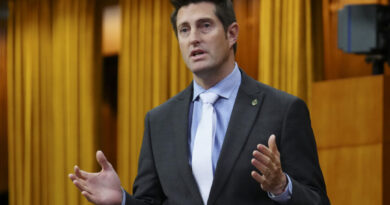Kremlin acknowledges interest from US companies in rare earths partnership, but obstacles persist
In a statement, Kremlin spokesperson Dmitry Peskov highlighted the ongoing challenge of U.S. sanctions on Russia, emphasizing that “restrictions continue to apply to American companies.”
Dmitry Peskov further noted that despite expressed interest from several Russian and U.S. companies in collaborating on rare earth metals extraction projects, obstacles still hinder progress. The Kremlin spokesperson mentioned the continuing efforts of U.S. President Donald Trump to establish new economic partnerships with Russia, amidst the backdrop of the unresolved Russia–Ukraine conflict.
During a press interaction on March 31, Peskov acknowledged the nascent mutual interest in joint rare earth extraction as the starting point following a period of strained bilateral relations. He also stressed the significant efforts required to ameliorate the current situation, as reported by Russia’s state-backed news agency TASS.
Additionally, Kirill Dmitriev, CEO of the Russian Direct Investment Fund, highlighted the interest shown by multiple U.S. companies in collaborating on rare earth metals projects with Russia. However, Dmitriev did not disclose the specific companies involved.
The Russian Direct Investment Fund, a state-backed sovereign wealth fund, is headed by Dmitriev, who also serves as Russian President Vladimir Putin’s special representative for foreign economic partnerships and has participated in recent U.S.–Russia diplomatic discussions.
Rare earth metals, a crucial component in modern technologies like computer components, batteries, and magnets, are seen as a crucial area of cooperation between the two countries. Discussions have begun on various rare earth metals and projects in Russia, according to Dmitriev’s interview with Russia’s Izvestia newspaper.
Despite these discussions, Peskov reiterated that economic sanctions from Washington persist, impacting American companies. He cited ongoing restrictions on American companies, as reported by TASS.
On March 30, Trump threatened potential secondary tariffs on Russian oil, aimed at accelerating the peace process with Ukraine. Amid renewed tensions over recent statements and actions by Russian President Putin and Ukrainian President Zelenskyy, Trump expressed frustration but also expressed hope for better relations moving forward.
While discussing challenges in a separate mineral extraction partnership between the U.S. and Ukraine, Trump highlighted Zelenskyy’s apparent hesitance to abide by a previously agreed deal. These developments underscore the complexities in navigating geopolitical partnerships and conflicts in the region.
Emel Akan contributed to this report.



